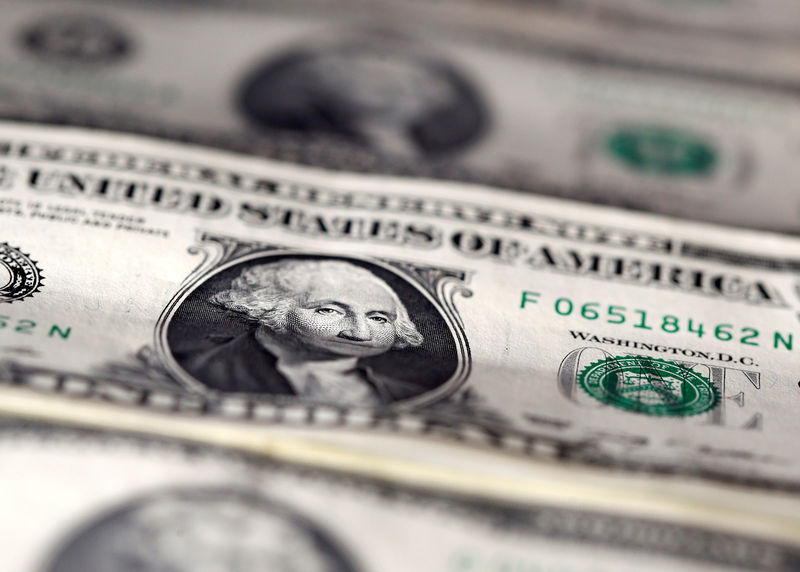By Stanley White
TOKYO (Reuters) - The dollar held steady in Asia on Friday on expectations U.S. Federal Reserve Chairman Jerome Powell would stick with his message that the central bank has not entered a prolonged monetary easing cycle.
Powell gives a highly-awaited speech later Friday at a meeting of central bankers in Jackson Hole, but doubts have emerged after two Fed officials said they saw no reason to cut interest rates again without new signs of economic weakness.
In Asian currency markets, the New Zealand dollar jumped after the Pacific nation's central bank chief said he was "pleased" with where interest rates were at, hosing down expectations of more immediate rate cuts after this month's aggressive easing.
Currency markets have in recent months been driven by global central banks' shift to much more accommodative policy settings as economic demand slows and trade disputes intensify.
Expectations that the Fed will cut rates at its next meeting in September are still very high, according to interest rate futures, but the currency market is likely to react if the tone of Powell's comments do not match these dovish expectations.
"The rates market is well ahead of the Fed in pricing in aggressive rate cuts, but Powell may not be as dovish as the market is pricing in," said Masafumi Yamamoto, chief currency strategist at Mizuho Securities.
"Powell will keep the option of rate cuts on the table, but won't lean too strongly in that direction. This would be supportive for the dollar."
The dollar was little changed at 106.48 yen on Friday. The dollar fell 0.2% versus the yen on Thursday following slightly weak data on the U.S. manufacturing sector.
For the week, the greenback was on course for a 0.1% gain versus the yen.
The dollar index (DXY) against a basket of six major currencies was little changed at 98.170.
The New Zealand dollar rose 0.4% to $0.6391 and 0.4% to 68.06 yen (NZDJPY=). Reserve Bank of New Zealand Governor Adrian Orr told Bloomberg TV he can afford to wait on monetary policy after stunning investors earlier this month with a sharp 50-basis-point rate cut.
In the United States, Philadelphia Federal Reserve Bank President Patrick Harker and Kansas City Federal Reserve Bank President Esther George both said on Thursday they saw no immediate need to cut rates.
Powell is likely to acknowledge later Friday that fallout from the U.S.-China trade war may worsen a global economic slowdown and ultimately make more U.S. rate cuts necessary.
But he is expected also to try to ensure he is not seen as bowing before repeated attacks from President Donald Trump for not easing policy further.
Interest rate futures traders are pricing in a 91% probability of a rate cut at the Fed's September meeting, according to the CME Group's FedWatch tool. In July the Fed cut rates for the first time in a decade to 2.00%-2.25%.
The dollar edged to a three-week high of 0.9846 Swiss franc on Friday.

The greenback was on course for a 0.7% gain against the safe-haven Swiss franc this week in a tentative sign of an improvement in risk sentiment.